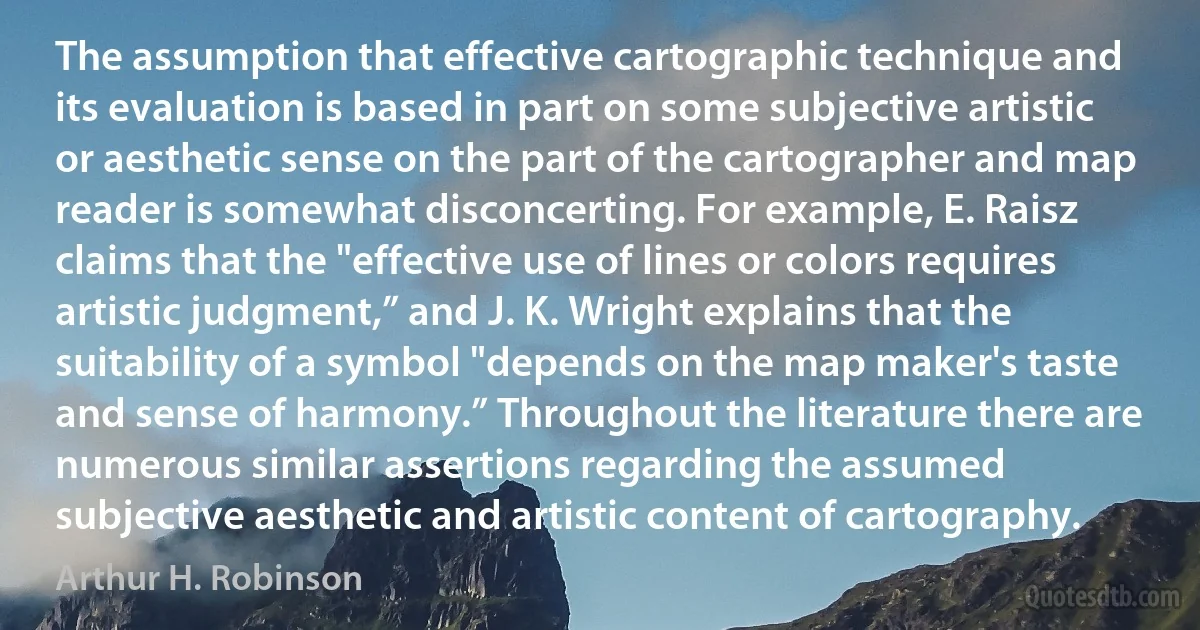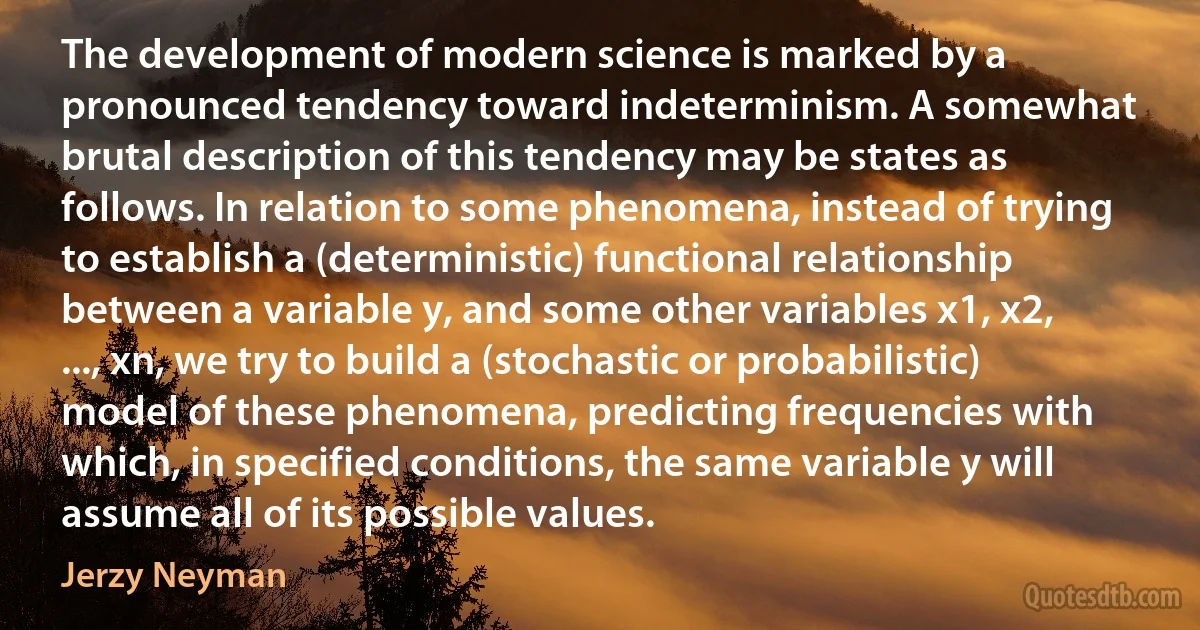Somewhat Quotes - page 16
[Venice is] somewhat disguised by the artists who usually paint Venice, who have disfigured it by turning it into a city heated by the brightest and hottest sun. On the contrary, Venice, like all luminous cities, has a grey hue, the atmosphere is mild and misty and the sky arrays itself with clouds, just like the sky of our Norman and Dutch regions.

Eugène Boudin
In the intellectual market the quantity of the demand rises in proportion to that of the supply, but its quality does not keep pace with this increase. For example, the Old Testament of pianoforte players, Bach's "Wohltenoerurtes Klavier” is perhaps in almost as many hands as the New Testament, Beethoven's Pianoforte Sonatas, but in few more heads than it was in former years, when it could only be had for six times the present price. Doubtless, its leaves are somewhat oftener turned over, but now, as then, about the sixth part, likely enough just the first sixth, is all that is studies in the real meaning of the word. Here truly is little more gained than a merely superficial acquaintance with the great father of German music.

Hans von Bulow
In his 1975 book, The Limits of Liberty, Buchanan returned to the study of constitutions, but now approached them with a somewhat more cynical (realistic?) Hobbesian perspective. His later books with Geoffrey Brennan (1980,1985) also emphasized the importance of constitutional rules as constraints on the selfish pursuits of individual actors, and as means for controlling that public sector beast-Leviathan. This concern with constitutional decision making and constitutional rules can be regarded as one of the salient characteristics of James Buchanan's research throughout his career.

Dennis Mueller
When looking at the two streams of research these men produced, it is tempting to characterize Buchanan as a somewhat romantic optimist holding the belief that the pursuits of selfish individuals can be channeled for the common good, if the right set of constitutional constraints are adopted, and believing that individuals are capable of designing constitutions that achieve this goal. Thus, some 35 years after the publication of The Calculus, we find Buchanan, in joint work with Roger Congleton (1998), accepting the fact that legislatures always will adopt the simple majority rule, and trying to design constitutional constraints that will lead to outcomes benefiting all members of the community under that rule.

Dennis Mueller
The theories in this chapter, focusing on the individual level of analysis, differ somewhat from those in the next chapter, in which a more organizational level of analysis is employed. Although all of the theories are essentially cognitive and social definitionist in nature, particularly as developed in the general sociological literature, there are at least two important subgroups within the social constructionist perspective.

Jeffrey Pfeffer
The intention of not only the screenwriter, but also the entire production staff, was to focus on how people would react if a creature such as Godzilla really did appear. What would the politicians do? How about the scientists? How would the military handle the situation? Given this, it was inevitable that the film would seem at least somewhat like a documentary.

Ishiro Honda
Karna the Warrior could not make that promise, for if he did, he would have to revoke another one. Tomorrow he would go to war, and his enemies would be the Pandavas. They were the ones, Arjuna in particular, who had publicly reviled him for being a lowly charioteer's son And it was Duryodhana, the eldest of one hundred Kaurava brothers, that came to his rescue by gifting him a kingdom of his own. Karna, in return, had pledged Duryodhana eternal fielty. But Karna the generous could not refuse his mother what she asked of him. Made a small adjustment, took a somewhat altered oath.

Kunti
Next we have the Vārttikas or "Notes" of Kātyāyana (probably third century B. C.) on 1245 of Pāṇini's rules, and, somewhat later, numerous grammatical Kārikās or comments in metrical form: all this critical work was collected by Patanjali in his Mahābhāshya or "Great Commentary," with supplementary comments of his own. He deals with 1713 rules of Pāṇini.

Pāṇini
Pāṇini had before him a list of irregularly formed words, which survives, in a somewhat modified form, as the Uṇādi Sūtra. There are also two appendixes to which Pāṇini refers: one is the Dhātupāṭha, "List of Verbal Roots," containing some 2000 roots, of which only about 800 have been found in Sanskrit literature, and from which about fifty Vedic verbs are omitted; the second is the Gaṇapāṭha, or "List of Word-Groups," to which certain rules apply. These gaṇas were metrically arranged in the Gaṇaratna-mahodadhi, composed by Vardhamāna in 1140 A. D.

Pāṇini
But through the 1990's I developed signatures, somewhat radical and unmistakably mine. Francis Picabia remains my hero. The more you dive into his work, the wilder it becomes. He painted the skewed Cubist paintings that we all know. Then came the kitsch works. And he ended up doing these strange, abstract works that are impossible to grasp. Whenever you think you've got him, he's always moved along. That's what I aspire to do.

Per Kirkeby
With every simple act of thinking, something permanent, substantial, enters our soul. This substantial somewhat appears to us as a unit but (in so far as it is the expression of something extended in space and time) it seems to contain an inner manifoldness; I therefore name it "mind-mass."

Bernhard Riemann
The word hypothesis has now a somewhat different significance from that given it by Newton. We are now accustomed to understand by hypothesis all thoughts connected with the phenomena.
Newton was far from the crude thought that explanation of phenomena could be attained by abstraction.

Bernhard Riemann



